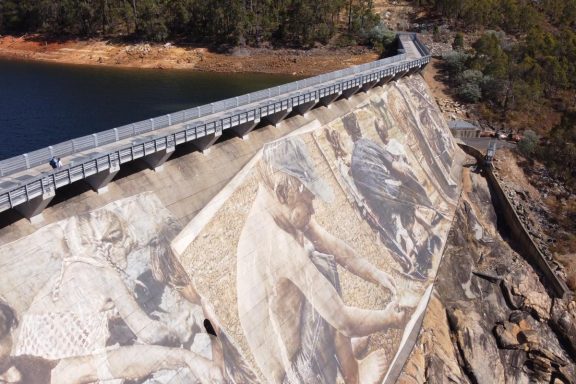
Water Management
1 May 2023
We live in the world’s driest continent, excluding Antarctica, in terms of precipitation received.
In WA, our limited and unpredictable rainfall, unevenly distributed geographically, has always been a concern, affecting people, communities, agriculture, and the environment.
In recent decades, climate change has made this much worse, creating many problems in water capture, storage, and use. Perth’s average annual rainfall has reduced around 20% since the 1970s and is expected to decline further. We are experiencing more dry sunny days and hotter days, putting further pressure on our water supply.
Rainfall has traditionally been the main source of our water supply, captured in dams, and in natural underground reservoirs, our groundwater reserves.
As rainfall has declined over the last 4 decades, dam levels and groundwater reserves have dropped dramatically. A growing population and increased use of bores have also had an impact.
Strategies have focused on new sources of water, increasing water recycling, and working with the community to reduce water use and waste.
Desalination plants in the 2000s and groundwater replenishment in the 2010s, where highly treated wastewater is returned slowly to groundwater reserves, have helped stabilise water sources. A third desal plant is planned in Alkimos.
Restricting watering days to 2 days a week saves up to 4.5B litres of water a year, about 1800 Olympic size pools.
Without these measures, Perth would have faced dire problems many years ago.

For individuals, there are many ways to use water more efficiently, and reduce waste and energy use.
The Water Corporation has many suggestions on how to be “waterwise” in the kitchen, the laundry, the bathroom, and the garden, see their website below.
Many councils state wide have supported and are actively working to manage their water resources as efficiently as possible to meet their community needs. This includes 5 year action plans, trained water management staff, and greening initiatives. Any plans or actions should not include excessive irrigation.
Many businesses too, large and small, across diverse activities have developed and are managing detailed water management plans.
Our relationship with water has changed and will continue to evolve. Some may remember the last time the Mundaring Dam overflowed in 1996. This will not happen again.
WA’s people and businesses, service organisations and government have to date done very well to manage this most precious resource. Going forward, we must not take our water for granted, our action and vigilance must continue.
Sources
Water Corporation – https://www.watercorporation.com.au/Our-water/Climate-change-and-WA ;


Discussion